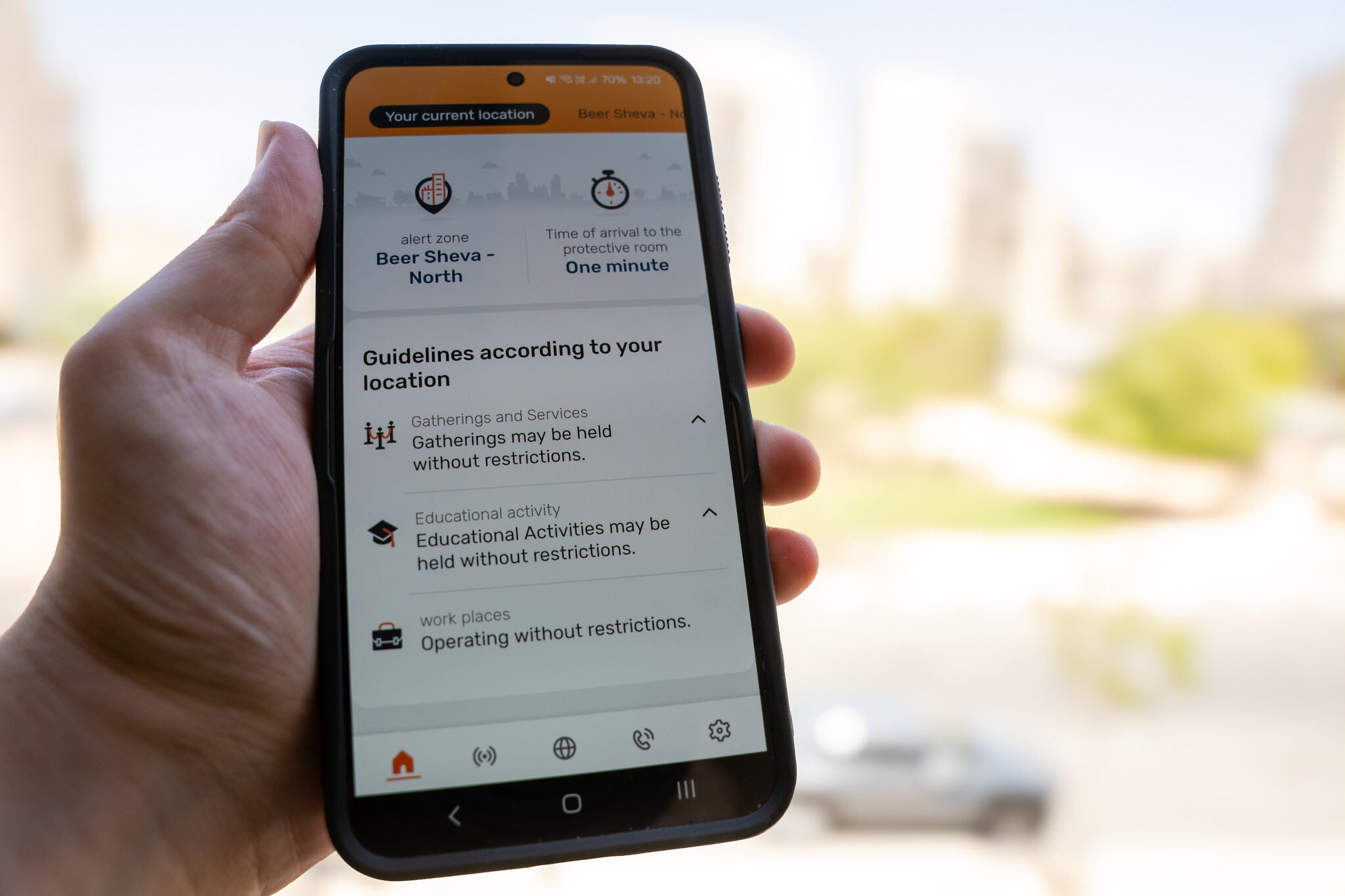



The IDF Home Front Command said Tuesday it will no longer be sending a pre-launch alert calling on civilians in areas potentially under threat from Iranian ballistic missiles to be prepared to head to bomb shelters.
Those alerts were issued 15-30 minutes before missiles were launched, following the IDF’s identification of preparations by Iran to launch missiles.
The Home Front Command said it will still aim to provide an early warning around 10 minutes before sirens sound, as missiles are detected being launched from Iran.
Once sirens sound, civilians are instructed to enter bomb shelters and stay there until further notice.
The early warnings, provided since the beginning of the conflict on Friday, were issued via the Home Front Command app, instructing civilians to ensure they are near bomb shelters. They were aimed to assist those without bomb safe rooms in their homes to head for public shelters in time, military officials said.
Ahead of Iranian attacks in April and October, alerts were also issued ahead of time to Israeli citizens to remain near shelters.
Overnight Tuesday, the Home Front Command gave much shorter early warnings for Iran’s ballistic missile attacks than it had previously, possibly due to the relatively small number of missiles fired.
Iran launched fewer than 10 missiles total in three separate attacks — just after midnight, at 3:30 a.m., and 4:30 a.m. — but in each case, the Home Front Command issued an alert to civilians just 2-3 minutes before the actual sirens sounded.
Additionally, the Home Front Command did not issue the now-scrapped pre-launch alert calling on civilians in areas potentially under threat to be prepared to head to a bomb shelter in any of the overnight attacks..
The shorter early warning and lack of preliminary alert were thought to be tied to the fact that Iran launched far fewer missiles overnight than it had previously, likely making it harder to detect the launch or pre-launch preparations than when barrages comprised dozens of missiles.
So far, 24 people have been killed and more than 500 wounded in Iran’s ballistic missile attacks, launched in response to Israel’s surprise campaign against the Islamic Republic, which began early Friday.
Israel says its sweeping assault on Iran’s top military leaders, nuclear scientists, uranium enrichment sites and ballistic missile program is necessary to prevent its longtime adversary from getting any closer to building atomic weapons. At the beginning of the campaign, it said the situation had become an immediate existential threat to the Jewish state.
Israeli strikes on Iran have killed at least 224 people, according to Iranian officials.

